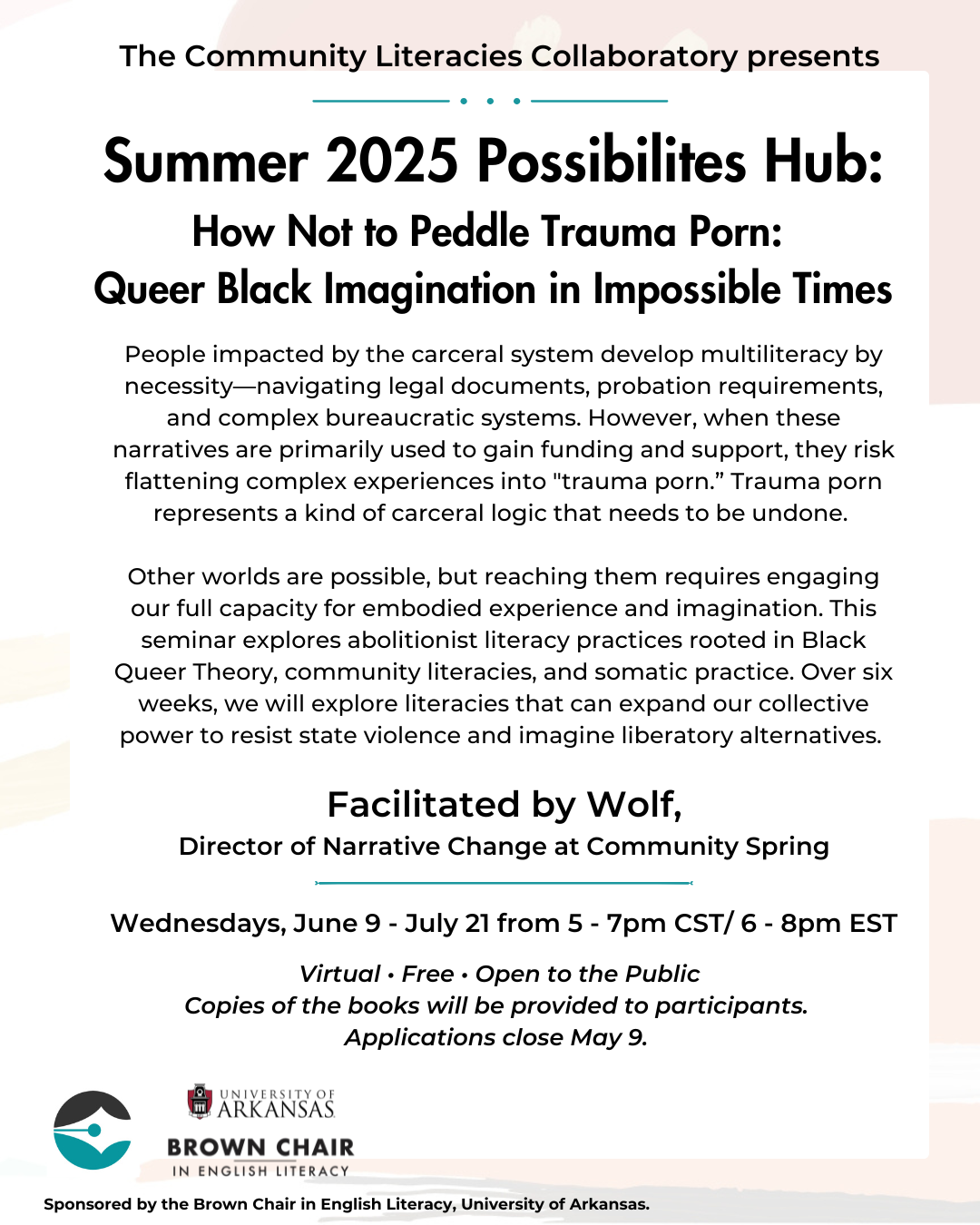
The Community Literacies Collaboratory presents
Summer 2025 Possibilites Hub:
How Not to Peddle Trauma Porn: Queer Black Imagination in Impossible Times
When: Wednesdays, June 9 – July 21; Recess June 30th
Times: 5 – 7pm CST/ 6 – 8pm EST
Where: Virtual
Cost: Free and Open to the Public
People impacted by the carceral system develop multiliteracy by necessity – navigating legal documents, probation requirements, and complex bureaucratic systems. Their stories are crucial for movement building and securing resources. However, when these narratives are primarily used to gain funding and support, they risk flattening complex experiences into “trauma porn,” where suffering becomes currency and storytellers lose agency over their narratives. Trauma porn represents a kind of carceral logic that needs to be undone.
Other worlds are possible, but reaching them requires engaging our full capacity for embodied experience and imagination. This seminar explores abolitionist literacy practices rooted in Black Queer Theory, community literacies, and somatic practice. Over six weeks, we will explore literacies that can expand our collective power to resist state violence and imagine liberatory alternatives.
The seminar engages practitioners, formerly incarcerated people, organizational leaders, and academics to develop ethical storytelling methods that center impacted communities’ experiences and knowledge.
Key questions include: How can untold stories emerge when those most impacted drive the narrative? How might embodied storytelling promote community wellbeing? What role can speculative fiction and imagination play in collective dreaming? How do we cultivate care in times of messy transformation?
Meet Your Faciliator
Wolf, Director of Narrative Change at Community Spring
Wolf, currently the Director of Narrative Change at Community Spring in Gainesville, Florida, holds a PhD in Rhetoric and Writing Studies and has a decade of experience in community-engaged scholarship and practice, working at the intersection of community literacies, prison abolition, and community wellbeing. Their pronouns are they/she.
Copies of the books will be provided to participants.
Applications close May 9th
To register, visit here